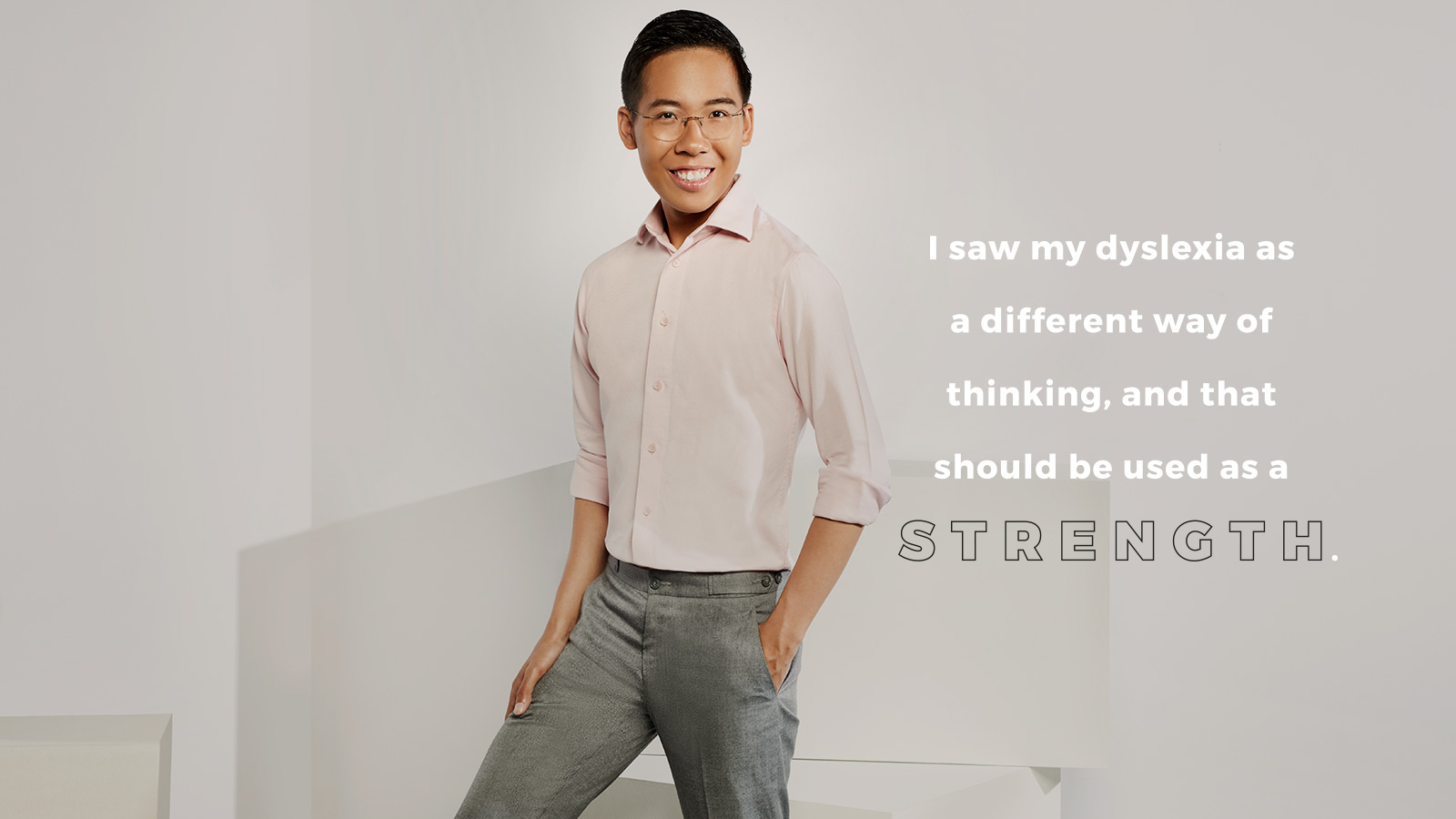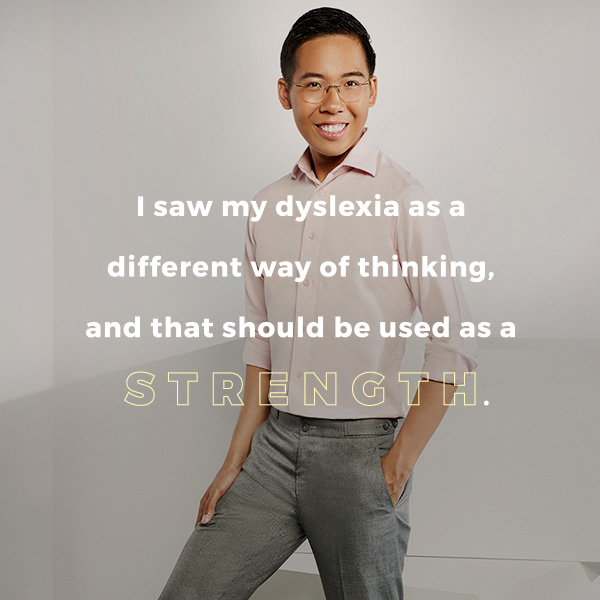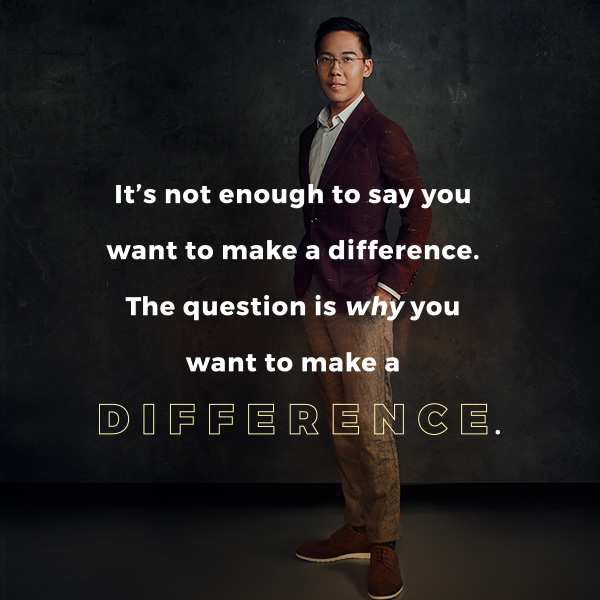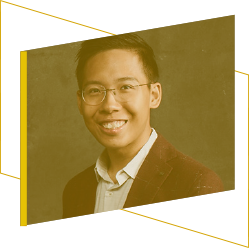The 25-year-old says: “I saw my dyslexia as a different way of thinking, and that should be used as a strength. We see the world in images as opposed to text and words. Some strengths include being able to see the bigger picture, connecting the dots between topics or across time, and being more creative thinkers. Our education system might not be designed for dyslexics, but that doesn’t mean you can’t succeed.”
Having made strides in his own battle, he decided to help others in a similar situation. While studying Business and Accountancy at Nanyang Technological University (NTU), he proactively helped start the Dyslexia Association of Singapore’s Alumni Department, which now has 450 members. The department, he says, “supports adult dyslexics to use dyslexia as a strength” via networking events, executive functioning programmes and working with institutes of higher learning. Edward himself is walking the talk. He has been able to unleash his entrepreneurial and business instincts, embracing success as an entrepreneur by running a “bank” for social enterprises and balancing the demands of entrepreneurship with the rigours of university. “A learning disability is no barrier t o ambition and success,” he says.
GOING SOCIAL
Right out of NS, Edward, then 21, started a company in 2015 called Invenio that sought to equip school students with leadership and study skills. He continued to run the company as an undergraduate at NTU. But the experience soon shifted his passion toward social causes.
When he went to Bangladesh in 2016 for a social business programme run by Yunus Centre, he encounteredsocial enterprises and social businesses and was moved by what they were doing. “I met the most amazing people who taught me the meaning of empathy and what it means to be a person,” he says. “When I talked to people who appeared to be social out casts, I realised they were not just made up of unfortunate tales. They were people who have stories like us, with dreams and problems. They find solutions to problems, and I felt this was something I could not do. So, the next best thing was to support them in what they do.”

















